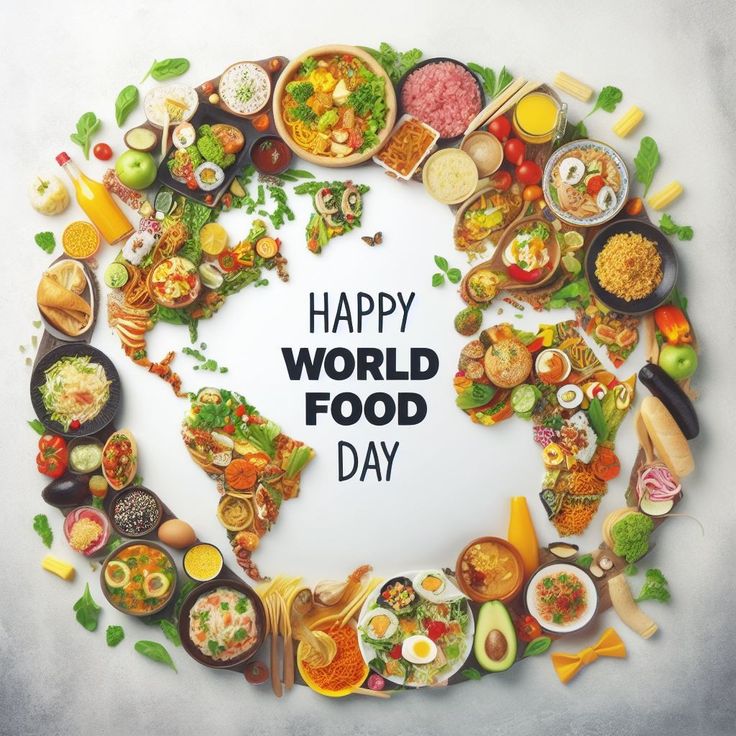“10 Powerful Reasons Why World Food Day Is Crucial for a Better Future”
All About World Food Day
World Food Day, celebrated annually on October 16, serves as a global reminder of the need for food security, sustainable agriculture, and the eradication of hunger. Initiated by the Food and Agriculture Organization (FAO) of the United Nations in 1979, the day highlights the critical importance of nutritious food for all and raises awareness about global hunger challenges.
With each year’s theme reflecting pressing issues such as climate change, food waste, and equitable access to resources, World Food Day unites individuals, organizations, and governments in the mission to create a hunger-free world.
The History of World Food Day
The idea for World Food Day originated during the 20th General Conference of the FAO in 1979. The date, October 16, commemorates the founding of the FAO in 1945, shortly after World War II, when food insecurity was a significant global challenge.
World Food Day has since become a global observance, engaging over 150 countries in initiatives, events, and programs aimed at tackling hunger and promoting sustainable agricultural practices.
Why Is World Food Day Significant?
- Raises Awareness About Hunger: Over 800 million people still go to bed hungry each night. World Food Day brings attention to this crisis.
- Promotes Sustainable Agriculture: It emphasizes the need for eco-friendly farming practices to protect the environment and future food supplies.
- Encourages Food Security: Ensuring everyone has access to affordable, nutritious food is a core focus.
- Tackles Food Waste: The day highlights the importance of reducing the 1.3 billion tons of food wasted annually.
- Inspires Global Action: Governments, NGOs, and individuals are encouraged to work together to eliminate hunger by 2030 (UN SDG 2: Zero Hunger).
Daily Life Impacts of World Food Day
World Food Day directly impacts our everyday lives by:
- Encouraging Healthy Eating: It emphasizes the importance of balanced diets and proper nutrition.
- Reducing Food Waste: It inspires individuals to adopt practices like mindful consumption and composting.
- Supporting Local Farmers: Buying local produce helps farmers thrive and ensures fresh, sustainable food sources.
- Promoting Awareness: By understanding food challenges, individuals can make informed choices that contribute to global food security.
- Highlighting Climate Impact: The day underscores the relationship between climate change and food production.
Important Points About World Food Day
- Date: October 16 (observed annually).
- Theme: Each year focuses on a different aspect of food security and sustainability.
- Global Participation: Celebrated in over 150 countries with campaigns, events, and educational programs.
- Core Message: Everyone has a role in ensuring food security and eradicating hunger.
FAQs About World Food Day
1. Why was World Food Day created?
To raise awareness about global hunger and encourage collective action to address food insecurity.
2. How is World Food Day celebrated?
Through food drives, educational campaigns, community events, and workshops on sustainable practices.
3. What is the theme for 2023?
The theme was “Water is Life, Water is Food”, focusing on sustainable water management in food production.
How to Observe World Food Day
- Volunteer: Participate in local food banks or community kitchens to support those in need.
- Donate: Contribute to charities and organizations fighting hunger worldwide.
- Learn and Educate: Attend events or workshops about sustainable agriculture and food security.
- Support Local Farmers: Buy fresh, local produce to promote sustainable farming practices.
- Raise Awareness: Share facts about hunger and sustainable food practices on social media.
Why World Food Day Is Important to Society
- Eliminates Hunger: Highlighting global hunger ensures continued efforts to achieve food security.
- Encourages Sustainable Practices: Emphasizing sustainability ensures a stable future for generations to come.
- Supports Global Health: Access to nutritious food is critical for reducing malnutrition and improving health.
- Bridges Inequality: Advocating for equal access to food addresses social and economic disparities.
- Inspires Action: Grassroots movements, policies, and global campaigns unite to combat hunger.
Facts About Food and Hunger
- Global Hunger: Nearly 9% of the world’s population faces hunger.
- Food Waste: An estimated one-third of all food produced globally is wasted.
- Undernutrition: Malnutrition contributes to nearly half of all deaths in children under 5.
- Smallholder Farmers: They produce over 70% of the world’s food, yet many struggle with poverty.
Wishing for a Hunger-Free World
On this World Food Day, let’s envision a future where everyone has access to the food they need to live a healthy, fulfilling life. Share a message of hope, engage in meaningful action, and reflect on the power of collective efforts. Together, we can ensure that hunger becomes a thing of the past and food security a reality for all.
This article provides an engaging and comprehensive overview of World Food Day, designed to inspire action and highlight its importance in fostering a sustainable and equitable world.










